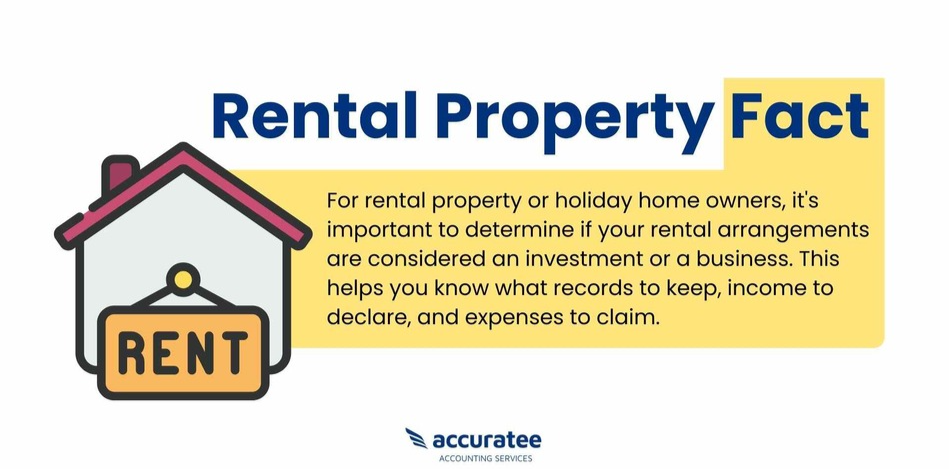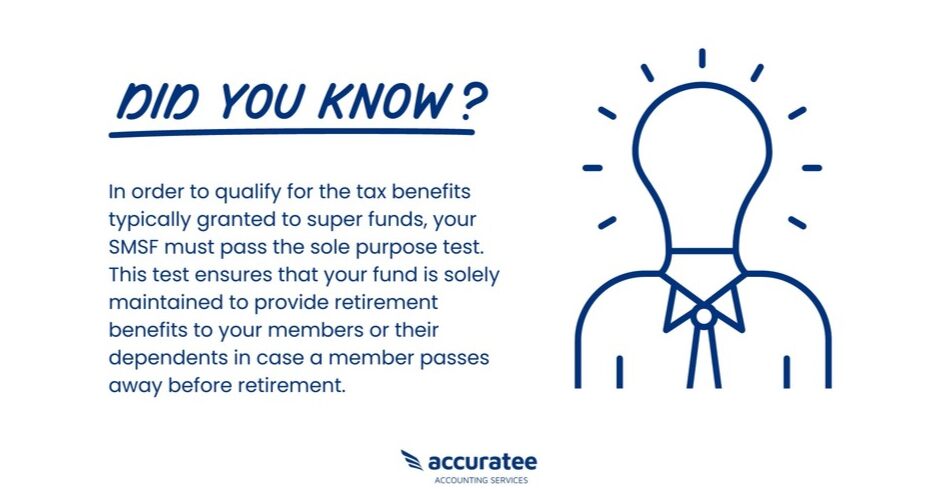The Dos and Don'ts of SMSF property investment: A beginner's guide
Introduction:
Investing in property through Self-Managed Super Funds (SMSFs) is not a decision to be taken lightly. As one of the most popular strategies used by Australians, it’s important to have a thorough understanding of the potential advantages and risks associated with investing in property via an SMSF. This article will go over some key considerations when thinking about this type of investment option, exploring both the do's and don'ts of using an SMSF for your property investments.
Whether you are doing so independently or with help from a financial adviser, there is much to consider before making such an important decision that could significantly change your portfolio dynamic and future retirement plans. By being aware of the dos and don'ts, you can navigate this investment avenue with confidence, maximizing the benefits while mitigating potential pitfalls.
Key takeaways
SMSF property investment requires thorough understanding of risks and complexities.
A well-defined investment strategy aligned with retirement goals is crucial before investing in property through an SMSF.
Familiarize yourself with the rules and regulations governing SMSFs investment property to ensure compliance.
Continuously review and assess your SMSF property investments to remain aligned with your financial goals.
What is SMSF property investment?
Self-Managed Super Funds (SMSF) have become increasingly popular in Australia as investors seek greater control over their retirement savings. SMSF property investment refers to the strategy of using SMSF funds to invest in residential property, commercial property, or industrial property. This type of investment is often chosen due to the tax benefits and potential long-term appreciation, as well as the ability for SMSFs to borrow money for property purchases.
However, it is not without its risks and complexities, and careful consideration and professional advice is necessary before embarking on an SMSF property investment strategy. Investors must also adhere to various regulations and reporting requirements set out by the Australian Taxation Office (ATO) to ensure compliance with superannuation laws.
How to invest in property through SMSF?
If you're interested in utilizing your retirement savings for property investment but lack sufficient funds in your superannuation, SMSF Borrowing can be an ideal solution. By meeting the necessary conditions, you can leverage your Self-Managed Superannuation Fund (SMSF) to invest in property through a Limited Recourse Borrowing Arrangement (LRBA).
This opens up a broader range of property investment options while providing several benefits, including lower Capital Gains Tax (10%), accelerated growth of your retirement savings, and the ability to reinvest rental income to expand your property portfolio and maximize capital growth.
To get started, it's crucial to establish the SMSF and set up a dedicated structure called a Bare Trust or Property Trust. This trust holds the title of the investment property until the loan is fully paid off. The SMSF itself cannot directly borrow money, so Trustees can borrow from the bank and then on-lend to the SMSF, which simplifies administration and oversight.
With a limited recourse loan obtained from the bank, they can only access the property as collateral in the event of default, without recourse to the SMSFs other assets. Typically, banks require a personal guarantee from the Trustees to secure the loan, especially for higher Loan-to-Valuation Ratios (LVRs) like 80% for residential properties or 70% for commercial properties. However, if the loan has a lower LVR, such as 60%, the bank may waive the need for a guarantee from the Trustees.
Investment in residential property
If you buy a residential property using your SMSF, it is essential to be aware of certain restrictions and guidelines. One crucial aspect to consider is that neither Trustees nor any related parties are permitted to live in or utilize the property as a holiday house. The primary and exclusive purpose of the property must be as an investment within your SMSF. This means that the property should generate income through rent or appreciate in value over time.

Investment in commercial property
Investing in commercial premises through an SMSF has advantages over residential properties. Rules for residential properties in an SMSF prohibit renting or occupying the property by trustees or their relatives. However, commercial investment property can be sold to an SMSF and leased to trustees or related individuals/businesses. Any SMSF trustee can buy commercial property, not just small business owners, but stricter criteria apply for SMSF loans.
The Do’s of investing in property through SMSF
-
Prepare fund’s investment strategy:
Before you start investing, it's important to have a plan in place to increase your chances of success. An investment strategy is a written plan that focuses on generating retirement benefits for you or the members of your fund. This means that all investment decisions should align with this goal. By having a clear strategy, you can make informed choices about where to invest your money and how to manage your portfolio effectively.
-
Consider gearing:
Gearing involves borrowing money to invest. If it is done correctly, gearing can potentially increase the total return of your investments and help you reach your financial goals faster. However, there are risks involved when using leverage; such as higher costs associated with borrowing money, increasing tax obligations due to increased earnings and potential losses if the property market takes a downturn. Therefore, it is important to understand the implications of gearing before investing in property through your SMSF.
-
Monitor your investments:
Regularly monitoring your investments is important as the property market can change quickly and you may need to adjust your strategy accordingly. You should also keep track of rental income, expenses and any other related costs to ensure that your investments are performing as expected. This will help you make informed decisions about whether to continue investing in property through your SMSF or switch to other types of investments.
-
Understand fund regulations:
It is essential to understand the rules and regulations governing SMSFs. This includes understanding the maximum contribution limits, investment restrictions and asset requirements which must be adhered to in order for your fund to remain compliant with superannuation laws. You should also familiarize yourself with ATO reporting procedures as well as any other legal aspects of investing through your SMSF.
-
Seek professional assistance and advice:
It is best to seek professional advice before embarking on an SMSF property investment strategy, as there are many risks and complexities involved. A qualified SMSF professional can provide guidance on the structure of your SMSF, tax implications, loan options available, potential returns and other matters related to your fund. They will also be able to assist with the selection of appropriate investments and help manage your fund in a tax-effective way.
Expert Bookkeeping at Your Fingertips!
The Don'ts of investing In property through SMSF
-
Don't buy residential property from related party:
Your self-managed super fund (SMSF) cannot buy an asset from someone you have a relationship with, as per the rules. However, there are exceptions if certain conditions are met.
First, the asset must be purchased at its fair market value. Additionally, there are specific categories that allow for such transactions, including listed securities (such as shares, units, or bonds), business real property, in-house assets (as long as they don't exceed 5% of the fund's total value), or excluded assets.
If the asset is acquired for less than its market value, the difference should be recorded as a contribution. It's crucial to comply with these guidelines to ensure the legality and transparency of your SMSF investment activities.
-
Don't buy vacant land:
SMSFs are only allowed to buy income-producing properties, which means that vacant land is strictly off limits. While it may seem like a good investment strategy to purchase land and develop a building, this kind of activity is considered 'active trading' and goes against the rules. If you're interested in investing in property through your SMSF, make sure it's a property that will generate rental income.
-
Don't forget about the other assets:
When it comes to investing in a property through your SMSF, you need to remember that there are other assets out there as well. While real estate is an attractive investment option for many people, it isn't always the best choice for everyone. Make sure to take into account the other asset classes available, such as stocks and bonds, before making a final decision.
-
Don't ignore the tax implications:
Finally, you should never forget about the potential tax implications of investing in property through your SMSF. There are several different taxes that may be applicable depending on your situation, so make sure you consult with a qualified adviser to understand what your obligations are and how best to structure your SMSF investment.
-
Don't borrow more than you can afford:
It can be tempting to borrow more money to increase your potential return on investment, however, it is important to remember that you are responsible for paying back any loan taken out by the fund. Therefore, only borrow what you can realistically afford and make sure you have a repayment plan in place. If you can't meet the payments, you could be facing significant financial penalties.
Tax consequence of buying a property through SMSF
If you buy a property and rent it out, there are tax implications to consider. If you use a Self-Managed Super Fund (SMSF) to buy the property, the fund needs to pay 15% tax on the rental income it earns from the property. However, if you hold the property for more than 12 months before selling it, the fund can receive a discount on the tax it needs to pay on any profit made from the sale. This discount reduces the tax liability to 10%.
If you take a loan to buy the property, the interest payments on the loan can be deducted from the tax you owe on the rental income. If your expenses are higher than the rental income, you may have a loss that can be carried forward to future years and used to reduce your taxable income. When you retire and start receiving a pension, any rental income or profits from selling properties in your fund will be tax-free.
It's important to note that if you experience a loss on your property, you cannot use that loss to reduce the tax you owe on your personal income outside of the fund.

Ending note
SMSF property investing is a great way to build wealth for long-term financial security. However, it can be tricky and requires careful consideration before diving in. We hope this beginner's guide has shed some light on both the do’s and don’ts of SMSF property investment.
If you're interested in exploring SMSF, it's a good idea to consult with CleanSlate's team of SMSF experts. They can help you understand what to expect, including the tax implications, and align your financial goals and risk tolerance. Our experienced team will create a personalized plan that suits your unique needs, guiding you towards your aspirations. Get in touch with us today to ensure your SMSF investment journey is on the right track towards success. We're here to support you every step of the way.


















